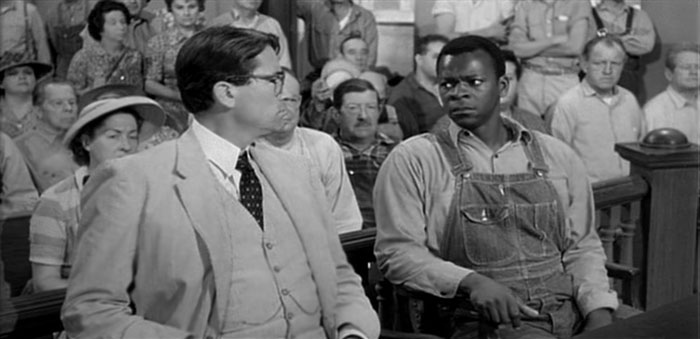
Directed by Robert Mulligan
35 mm black-and-white film
129 minutes
Brentwood Productions
Based on the novel by Harper Lee, To Kill a Mockingbird tells the story of Atticus Finch (Gregory Peck), a small-town lawyer and widower father, who passionately defends a black man (Brock Peters) wrongly accused of raping a white woman. Mockingbird made an important contribution to the public debate around race, both in the way it positioned the courageous and benevolent Finch as a role model for white Americans and in its blunt representation of prejudice. That a white man is made the hero of the film, however, distorts the reality that African American lawyers and organizations (such as the National Association for the Advancement of Colored People) were principally responsible for challenging segregation laws and malicious prosecutions.
Set in Alabama during the Great Depression, the film (like the novel) raises questions about poverty, racism, and injustice germane to the modern civil rights movement. As Finch argues for the innocence of his black client, he incites the fury of a Jim Crow South blinded by white pride, the perceived need to protect the purity of the white race at any cost, and irrational taboos against interracial sex and friendship.
Yet as is typical of Hollywood’s approach to the subject of white racism, the film isolates the problem of prejudice, avoiding all but the most virulent forms of southern bigotry. By focusing on a time and a place in which segregation was at its most venomous and unchecked, To Kill a Mockingbird, unintentionally or otherwise, distanced its predominantly non-southern audience from the problem that was all around but that few people would acknowledge. And by celebrating the heroism of the genteel Finch, rather than the everyday courage and perseverance of segregation’s black victims, the film appeases its white audience. Nevertheless, by representing the ugliness and injustice of racism—and the temerity of its protagonist to fight against it, at the risk of death—it sets an example for white Americans unequaled by most other films of the period.
Maurice Berger